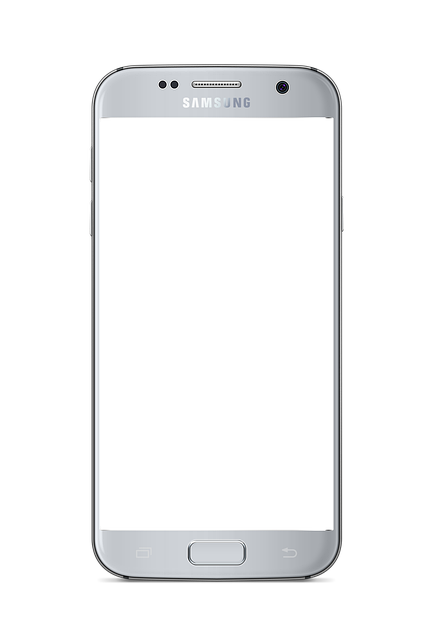Automated marketing messages, though effective, raise privacy concerns in South Carolina, where laws protect individuals from unsolicited calls and emails. If you've experienced unwanted marketing contact, consulting a telecommunications law specialist can help assert your rights against future violations, especially for 'lawyer for Unwanted call South Carolina' issues. The Telephone Consumer Protection Act (TCPA) prohibits businesses from contacting individuals without explicit consent, and persistent or distressing calls can be reported to the Federal Trade Commission (FTC). South Carolina residents facing unwanted marketing, such as robocalls or text spam, can find guidance from professional lawyers specializing in 'Unwanted call South Carolina' laws. These experts help individuals understand their rights and pursue legal action if needed, ensuring consumer privacy and protecting against unauthorized automated messaging.
In today’s digital age, automated marketing messages—from robocalls to spam texts—are a ubiquitous part of our daily lives. While these messages can be informative, they often raise concerns about privacy and consent. This article explores your rights when facing unwanted automated calls, delving into the legal framework that governs telemarketing practices in South Carolina, including the role of the Federal Trade Commission (FTC). Learn what constitutes a violation, understand relevant state laws, and discover steps to take if you’ve experienced an unwanted call, even with the help of a lawyer for unwanted call South Carolina.
Understanding Automated Marketing Messages and Their Legal Framework
Automated marketing messages, often in the form of text messages or emails, have become a common way businesses reach their customers. These messages can be highly targeted and personalized, but they also raise concerns about consumer privacy and consent. In South Carolina, as in many states across the country, there are laws in place to protect individuals from unwanted marketing calls and messages.
Understanding these legal frameworks is crucial for both consumers and businesses. If you’ve received automated marketing messages without prior consent or have been contacted repeatedly despite requesting cessation, it may indicate a violation of your rights. Consulting with a lawyer specializing in telecommunications law, such as those experienced in handling unwanted call cases in South Carolina, can help you understand your options and take appropriate action to protect yourself from future violations.
Your Rights: When Does an Unwanted Call Become a Violation?
If you’ve been receiving automated marketing messages, like robocalls or text spam, in South Carolina, it’s important to know your rights. According to the Telephone Consumer Protection Act (TCPA), businesses are prohibited from making automated calls or sending texts to individuals who have not given explicit consent. This means that if you haven’t opted in to receive such messages, any contact from telemarketers or automated systems could be considered an unwanted call.
If these messages become persistent or cause you distress, taking action is within your rights. You can report the issue to the Federal Trade Commission (FTC), which oversees compliance with the TCPA. Additionally, seeking legal advice from a qualified lawyer for unwanted calls in South Carolina can help you understand your options and assert your rights against violators.
The Role of the Federal Trade Commission (FTC) in Regulating Spam
The Federal Trade Commission (FTC) plays a pivotal role in regulating spam and protecting consumers from unwanted marketing messages, including phone calls, texts, and emails. As one of the primary regulatory bodies in the United States, the FTC enforces laws aimed at preventing deceptive and aggressive marketing practices. In the context of automated marketing, such as robocalls, the FTC has established guidelines to ensure that businesses obtain proper consent before contacting consumers. This includes rules regarding do-not-call lists and the implementation of opt-out mechanisms for text messages and automated calls.
For South Carolina residents experiencing unwanted or deceptive marketing calls, seeking legal counsel from a professional lawyer for Unwanted call South Carolina can be beneficial. These experts are well-versed in consumer protection laws and can guide individuals on their rights and available remedies when faced with persistent spam or telemarketing harassment. Understanding one’s rights is essential to navigating the complexities of regulatory bodies like the FTC and ensuring that marketing practices adhere to legal boundaries.
South Carolina Laws and Regulations on Telemarketing Practices
In South Carolina, telemarketing practices are regulated by state laws aimed at protecting consumers from unwanted and deceptive calls. The South Carolina Attorney General’s Office enforces these regulations, which include specific guidelines for businesses engaging in telemarketing activities. Any business making automated marketing calls must comply with these rules to ensure they do not infringe on a consumer’s privacy or rights.
If you receive unsolicited automated messages or experience repeated unwanted calls, you have options. Consulting a lawyer specializing in telecommunications law, especially one experienced in handling cases related to unwanted calls South Carolina, can help you understand your rights and take appropriate action. They can guide you through the process of filing a complaint with relevant authorities and pursuing legal recourse if necessary.
Taking Action: What to Do If You've Received Unwanted Automated Calls
If you’ve received unwanted automated calls or text messages, there are steps you can take to stop them. The first course of action is to document the calls—note the date, time, and content of the message—and keep a record of any interactions with the sender. This information will be valuable if you decide to take further action.
Next, consider blocking the number. Most smartphones allow you to block specific numbers directly from your call settings. Additionally, consult with a lawyer for unwanted calls in South Carolina to understand your legal options. Depending on the circumstances and frequency of the calls, you might have the right to sue under state or federal laws regulating telemarketing practices. They can guide you through the process and help ensure your rights are protected.






